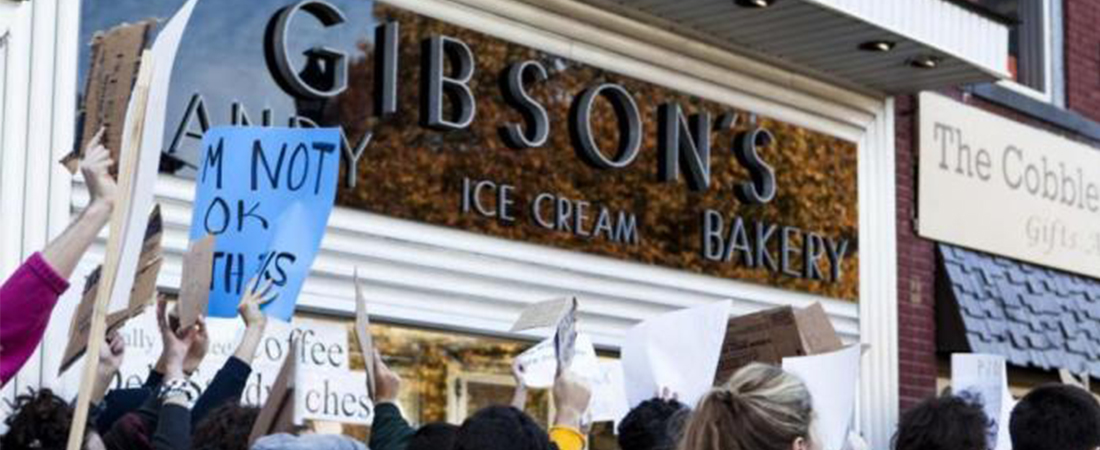NCAC has joined several free speech organizations in supporting Oberlin College’s appeal of a $44 million libel judgment that threatens the free speech rights of its faculty and students. They filed an amicus brief in an Ohio appeals court on June 5.
The case grew out of the arrest of three African American students in 2016 for attempted theft at Gibson’s Food Mart & Bakery in Oberlin. Hundreds of Oberlin students––overseen by some faculty members––gathered outside Gibson’s to protest the alleged mistreatment of the convicted students and the police report that included only the perspectives of Gibson’s employees. One year later, Gibson’s owners sued Oberlin administrators, alleging that they had directly participated in the defamation of Gibson’s, in part, by helping students print flyers calling Gibson’s a “RACIST establishment with a LONG ACCOUNT of RACIAL PROFILING and DISCRIMINATION.”
If left unchallenged, the jury’s decision to side with Gibson’s constitutes a significant threat to free expression on campuses nationwide. As NCAC argues in its brief, Oberlin itself said nothing about Gibson’s; rather, it was held liable for the speech of its students. The court’s decision to make Oberlin liable for the actions of its students could lead colleges to restrict student speech, making faculty members responsible for patrolling student expression when they should be encouraging student activism.
Perhaps no institution depends more on free expression than the university. As Supreme Court Justice Earl Warren wrote in Sweezy v. New Hampshire, if teachers and students do not feel free to engage in open dialogues, “our civilization will stagnate and die.”
It is also deeply troubling that Gibson’s owners succeeded in their lawsuit despite the fact the Supreme Court has limited the use of libel laws to protect free speech.
Until the landmark 1964 Supreme Court case New York Times v. Sullivan, libel judgments were usually upheld as long as the plaintiff proved the defendant made a false, defamatory statement that damaged his or her reputation. Sullivan, however, restricted the ability of public figures to sue for libel, requiring that they not only prove the defendant made a false statement, but also acted with “actual malice,” which means the defendant either knew that the statement was false, or acted with reckless disregard of whether it was true or false. Oberlin and NCAC argue that, as a well-known local business, Gibson’s is a public figure, and therefore it had to prove that Oberlin acted with malice.
In Gibson’s v. Oberlin, the jury found no evidence of malice and instead claimed only that Oberlin officials had acted “negligently.”
Another amicus brief submitted in the case by some of the nation’s top First Amendment scholars notes a significant difference between negligence and malice. Even if it were proven that the students were wrong in labeling Gibson’s a racist establishment, it does not mean they acted with reckless disregard or were aware that their statements were false. In criticizing the store, they were only exercising their right under the First Amendment.
NCAC believes that the libel judgment against Gibson’s will be overturned. Students and faculty must remain free to express their views, no matter how offensive they may be to others.
NCAC was joined on the brief by the Brechner Center for Freedom of Information, Defending Rights & Dissent, and the DKT Liberty Project.


